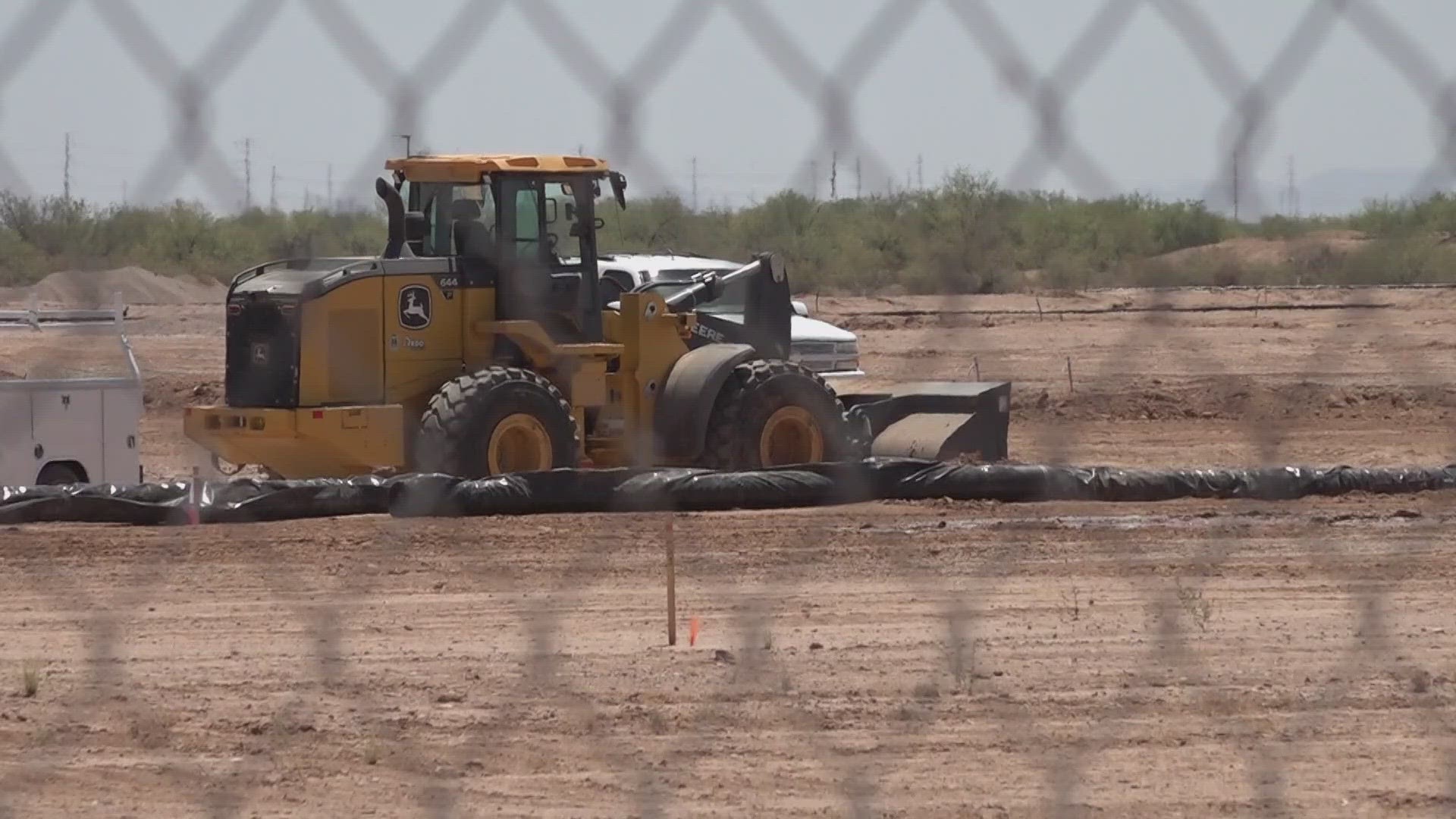PHOENIX — The State of Arizona's decision to halt groundwater-based building permits could dramatically slow the Valley's outward expansion, experts said Friday.
On Thursday, Gov. Katie Hobbs announced the state would no longer approve building permits for developments inside Assured Water Supply areas that rely solely on groundwater, saying the groundwater in the Phoenix area was already spoken for.
Arizona's Assured Water Supply (AWS) law requires builders outside certain boundaries like city limits to show that they have a 100-year supply of water. Typically, that guarantee has been in the form of groundwater.
But according to the Arizona Department of Water Resources's newest water model, all of that groundwater has been allocated for the next 100 years.
The halt on AWS permits does not affect projects that have already been approved, nor does it affect cities that have already shown a water guarantee.
But Kathryn Sorenson, director of research at the Kyl Center for Water Policy, said the announcement will likely make it prohibitively expensive for builders to continue to stretch the boundaries of the Valley.
“They can continue to develop on the fringes of the Valley of the Sun where land is much cheaper," Sorenson said, "but if they do so, they're going to have to acquire their own non-groundwater water supply and that's tough to do.”
Instead, Sorenson believes builders will shift their focus to areas inside city limits, where city governments have already secured enough water for potential developments.
“This kind of equalizes things," Sorenson said. "It makes development out on the fringes of the Valley, probably at least as expensive as development within the traditional city centers.”
However, the revised groundwater model assumes the Colorado River supply will stay constant, and experts agree that it will likely continue to drop in the coming years.
Sorenson said Thursday's announcement shows the AWS law, which has been on the books for 40 years, works as intended. But she said it also shows the importance of being able to conserve and find other sources of water to continue expanding.

